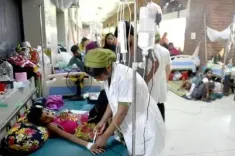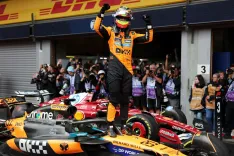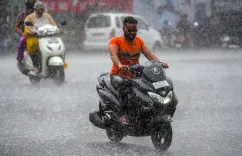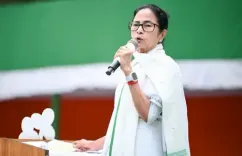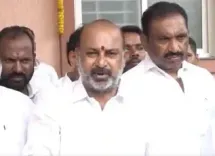Why Are Workers in Bangladesh Protesting Unpaid Wages?

Synopsis
Key Takeaways
- Workers protested for unpaid wages in Dhaka.
- Demands included seven months of salary arrears.
- Traffic was disrupted due to the highway blockade.
- Law enforcement used tear gas to disperse protesters.
- The protest highlights ongoing labor rights issues in Bangladesh.
Dhaka, July 27 (NationPress) Workers from a private company in Bangladesh's Dhaka held a protest on Sunday, demanding overdue wages and other benefits. This demonstration resulted in significant traffic disruptions and a blockade on the Dhaka-Mymensingh highway in the Gazipur area.
This private enterprise is a collaboration between a partner from the United Arab Emirates and a local Bangladeshi firm.
The protest started at approximately 7 a.m., resulting in a blockade that caused severe traffic jams, stranding many passengers and drivers for hours.
Several hundred workers participated in the protest, presenting a list of demands which includes the payment of seven months of back salaries with increases, merit-based hiring, annual salary adjustments in February, and protection against dismissal during protests.
They also seek equitable wage structures, a daily attendance allowance of Taka 500, a Taka 1,500 bonus, and the reinstatement of previously offered benefits, including pensions.
Workers stated they have been consistently deprived of their entitlements, with their pleas falling on deaf ears.
“With no other feasible options available, we felt compelled to protest and block the roads,” remarked one of the workers.
Tensions heightened when law enforcement attempted to clear the road, resulting in a series of chases between the police and the demonstrators.
Inspector Abdul Latif of the Gazipur Industrial Police confirmed that traffic resumed after the protesters were dispersed with tear gas.
Mohammad Abdul Barik, the Officer-in-Charge of Sreepur Police Station, stated that police initially sought a peaceful resolution, asking the workers to vacate the highway voluntarily. When discussions broke down, officers resorted to non-lethal crowd control methods to restore order and reopen the road.




